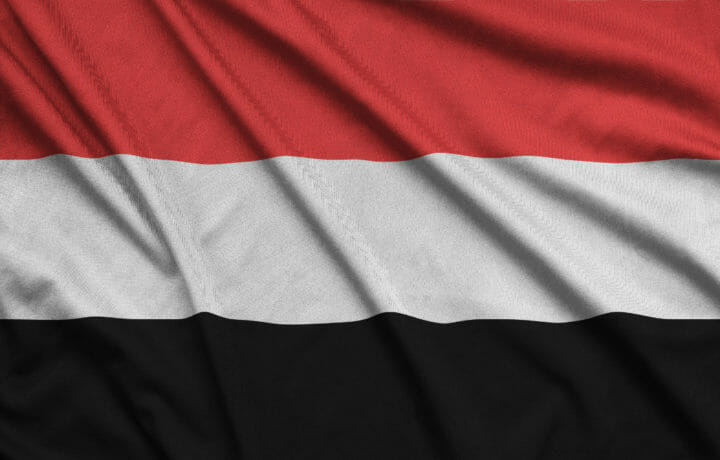Israel’s president, Isaac Herzog, spoke at Dubai’s Expo 2020 world fair on Monday as a historic first presidential visit to the United Arab Emirates (UAE). This occurred after UAE became the first Gulf state to normalize relations with Israel under a U.S.-brokered normalization agreement, dubbed the “Abraham Accords,” in 2020. With tighter than normal security at the EXPO site, Isaac Herrzog stated, “I hope and I believe that more and more nations will soon follow the UAE lead and join the Abraham Accords.”
However, many were holding their breath after the UAE reported it had intercepted a ballistic missile fired by Yemen’s Houthis overnight. This was the third attack like this in this past month.
Yesterday’s activity occurred just days after the restoration of a four-day internet outage, caused by a Saudi-led air raid on a telecom facility in the Yemeni city of Hodeidah. The attack reportedly killed three children and caused a nationwide denial of internet. But why? What is going on?
Yemeni Civil War
The Yemeni Civil War is an ongoing conflict that began in 2014 mainly between the Yemeni government and the Houthi armed movement. Houthi leadership charged former Yemeni president Ali Abdullah Saleh, with financial corruption and criticized Saudi and U.S. backing at the expense of the Yemeni people and sovereignty.
Houthi movement leadership is comprised of northern Yemeni Houthi tribesman. Having a complex relationship with Yemen’s Sunni Muslims; the Houthi Movement both discriminate against and recruit from Yemeni Sunnis. Houthi goals are to combat economic underdevelopment and political marginalization in Yemen while seeking greater autonomy for Houthi-majority regions of the country, desiring a more democratic non-sectarian republic for Yemen.
Saudi Intervention
In 2014 Houthis took over the government in the city of Sanaa and gained control of most of the northern part of Yemen’s territory – adjacent to Saudi Arabia. Since 2015, Houthis have been resisting the Saudi-led military intervention in Yemen which desires to restore the internationally recognized Yemeni government to power.
Frequent cross border missile attacks between Saudi Arabia, its coalition partner states and Yemen continue. The Houthis have launched repeated missile and drone attacks against Saudi cities on numerous occasions the past six years.
Iranian Support
Gulf Arab states, who back Yemeni’s President Hadi, accuse Iran of bolstering the Houthis, both financially and militarily. Iran continually denies this, but Wall Street Journal reported last month that UN Experts say weapons seized in the Arabian Sea confirm Tehran exports arms to Yemen. Regardless, many see the ongoing conflict as a proxy war between Saudi Arabia and Iran.
The U.S. Position
Nationwide ceasefire and a political solution appear slim. However, the UN desire to push revised peace talks were recently improved by U.S. foreign policy changes towards Yemen. Right after the inauguration in February 2021, the White House rescinded the designation of the Houthis as a terrorist group. Additionally, the U.S. ended support for “offensive operations” by the Saudi-led coalition.
After a drone and missile attacks on the UAE two weeks ago, President Biden said his administration is considering re-designating the Houthi as an international terrorist organization.
Why Does the Yemeni Conflict Matter?
Beyond Yemen’s strategic geographic importance, where much of the world’s oil passes through its strait linking the Red Sea with the Gulf of Aden, the UN says Yemen is the world’s worst humanitarian disaster. The conflict coupled with cholera and covid outbreaks, have caused four million people to flee their homes. Most of the Yemeni population is now in need of humanitarian assistance or protection.
It is believed that what is happening in Yemen greatly exacerbates regional problems and tension. Many believe the current situation may expand into a regional power struggle between Sunni-ruled Saudi Arabia and Shia-ruled Iran.
The West remains concerned over instability in Yemen as Islamic State (IS) militant groups attacked all the conflict’s major parties including Houthis, the Yemeni government, and the Saudi Arabian–led coalition forces. With IS and Al-Qaeda still in play and no conflict resolution in sight, we will continue to see aggravation to regional stability.




